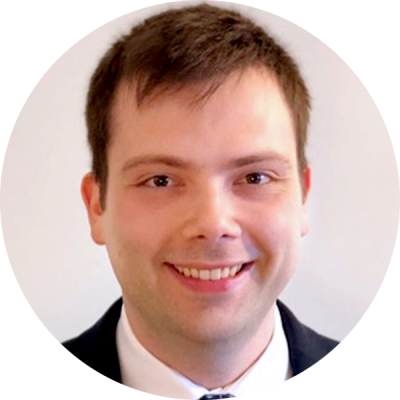
Daniel Ardeljan
I completed my Ph.D. thesis work with Kathleen H. Burns, M.D., Ph.D. My work centers around a basic question: How do cells survive the expression of LINE-1 retrotransposons? We believe this question is important in understanding cancer biology, since it seems that cancers, broadly speaking, tolerate reactivation of these transposons. The curious bit was that “normal” cells have a lot of trouble growing while also expressing these transposons, so that clued us in that there must be some way cancer-like cells handle that toxicity. We think that understanding these mechanisms could reveal something fundamental about the selective pressures imposed on tumors during their evolution, and could inform therapy. At the time we started, few in the LINE-1 field were interested in the translational potential for this biology, and even fewer cancer labs were really excited by transposons. We saw an opportunity to bridge this gap.
Questions & Answers
Why did you choose Johns Hopkins for your work?
I’m an M.D.-Ph.D. student, but I started as an M.D. student and then applied to the Ph.D. program internally. So, I initially chose Johns Hopkins for the clinical training it offers. When I entered the human genetics Ph.D. program, it was immediately obvious that the people here really care about advancing science in a selfless way. This place houses a lot of highly intelligent, highly motivated and highly collaborative people.
What does receiving this award mean to you personally and professionally? Do you have any connection with the particular award you received?
It’s a great honor to be chosen to receive this award. I am really delighted that it’s the Hans J. Prochaska Research Award, since I really believe that being both a physician and a scientist is an important aspect to how I’m approaching my science.
What contributed to your project’s success?
It came down to mentorship, collaboration and perseverance. Kathy was a great mentor who partnered with me to help develop my scientific skills. My thesis committee was also instrumental in helping shape my project and providing key reagents and expertise. I also need to mention the wonderful peer group I’ve had here. The hours spent with friends where all we did was talk about our science has been truly special, and made the years of long days and six- and seven-day weeks fly by.
What thoughts do you have about Young Investigators’ Day itself, as a celebration of the roles students and fellows play in research at Johns Hopkins?
I really appreciate the relationship between the PI and the trainee when it comes to discovery. I think the best relationships are ones in which each brings their own skill set and shapes the science in different ways, which really emphasizes the transition to independence for us trainees. I think that’s what Young Investigators’ Day celebrates.
What has been your best/most memorable experience while at Johns Hopkins?
Scientifically, I remember my thesis committee members’ reactions at the end of our final meeting. There was a shift in the room, and I could tell they were proud. That was a very special moment and was when I recognized that being a great mentor is something I’ll prioritize in my career. Clinically, there are many moments that stand out, but none more memorable than the first time I admitted a patient who asked me directly if they were going to die. Taking care of patients puts it all in perspective for why I do what I do.
What are your plans over the next year or so?
I’ll be a resident in internal medicine here on the Osler Service. Afterward, I’m planning for fellowship with the goal of transitioning to faculty and starting up my own research program.
Tell us something interesting about yourself.
I’m a first-generation Romanian-American. My family emigrated from Yugoslavia (present-day Serbia) and came to the U.S. to escape communism. I grew up bilingual in New York City, which has given me an appreciation for how language and culture are so intimately connected, and how the nuance of how we communicate hints at how we as individuals perceive the world around us.